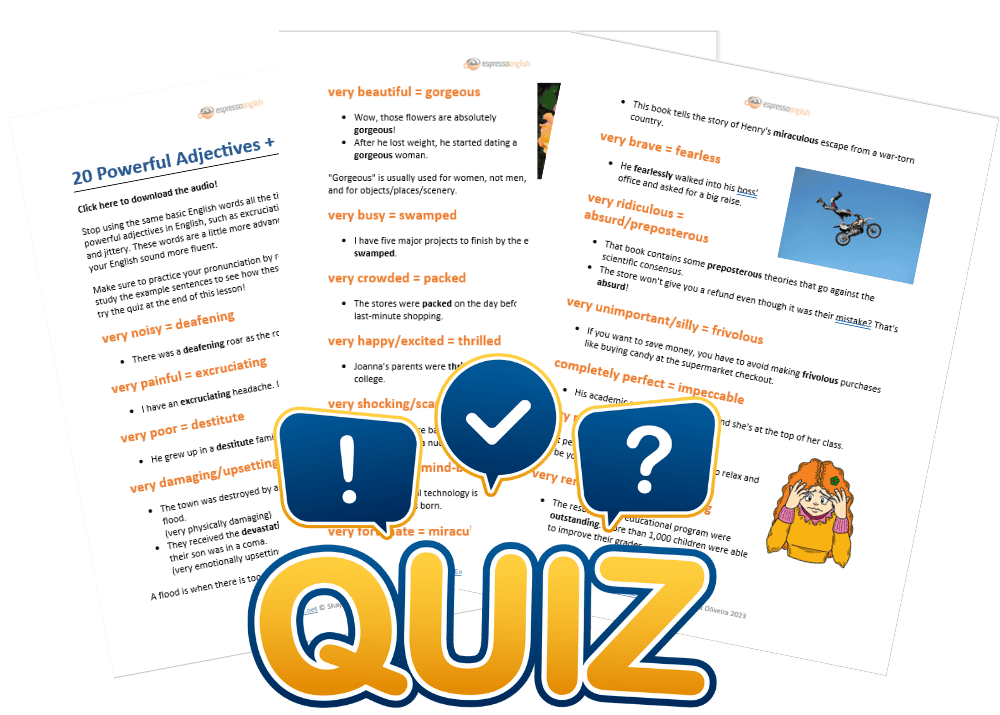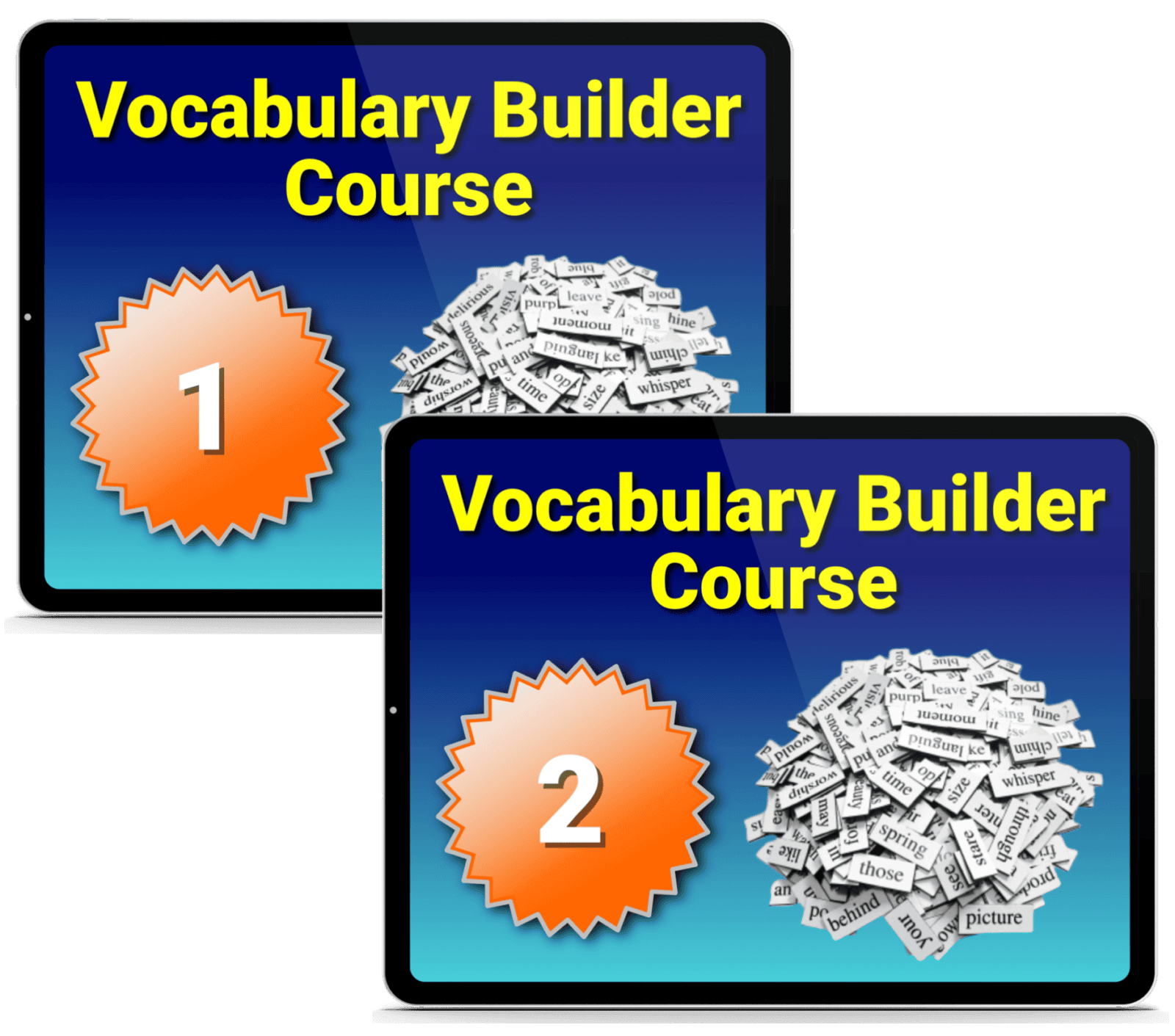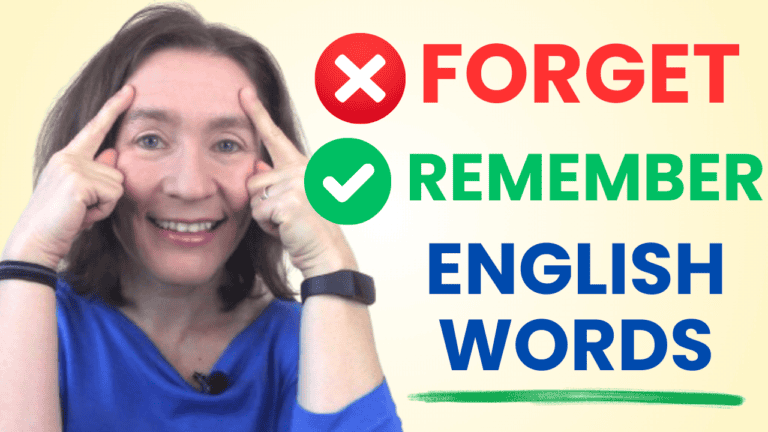
Let’s learn strong adjectives in English!
Stop using the same basic English words all the time – today you’ll learn 20 powerful adjectives in English, such as excruciating, destitute, miraculous, absurd, and jittery.
Some of these are positive adjectives, others are more negative adjectives. But they are all strong adjectives – more intense than regular ones!
You can practice your pronunciation by repeating these words after me, and study the example sentences to see how these strong adjectives are used.
What’s the best way to remember the descriptive words you’re learning?
Always put your new English vocabulary into practice! Write them down and create your own example sentences.
Inside my Vocabulary Builder Courses, each lesson has quizzes and exercises to help you practice and remember the new words.
Strong adjectives + examples
very noisy = deafening
There was a deafening roar as the rocket ship blasted off.

very painful = excruciating
I have an excruciating headache. I can’t even think straight.
very poor = destitute
He grew up in a destitute family that barely had enough food to eat.
very damaging/upsetting = devastating
The town was destroyed by a devastating flood.
(very physically damaging)They received the devastating news that their son was in a coma.
(very emotionally upsetting)

very beautiful = gorgeous
Wow, those flowers are absolutely gorgeous!
After he lost weight, he started dating a gorgeous woman.
“Gorgeous” is usually used for women, not men, and for objects/places/scenery.
very busy = swamped
I have five major projects to finish by the end of this week – I’m totally swamped.
very crowded = packed
The stores were packed on the day before Christmas – everyone was doing last-minute shopping.

very happy/excited = thrilled
Joanna’s parents were thrilled to hear that she’d won a full scholarship to college.
very shocking/scary = horrific / horrifying
Fifty people were badly injured in a horrific accident at the factory.
The prospect of a nuclear war is horrifying.
very amazing = mind-blowing
Modern medical technology is mind-blowing – they can even operate on a baby before it’s born.
very fortunate = miraculous
This book tells the story of Henry’s miraculous escape from a war-torn country.
very brave = fearless
He fearlessly walked into his boss’ office and asked for a big raise.

very ridiculous = absurd/preposterous
That book contains some preposterous theories that go against the scientific consensus.
The store won’t give you a refund even though it was their mistake? That’s absurd!
very unimportant/silly = frivolous
If you want to save money, you have to avoid making frivolous purchases like buying candy at the supermarket checkout.
very perfect = impeccable
His academic record is impeccable and she’s at the top of her class.
very nervous = jittery
Most people are jittery on a first date – try to relax and just be yourself.
very remarkable = outstanding
The results of the educational program were outstanding. More than 1,000 children were able to improve their grades.
very respected = prestigious
My internship at a prestigious law firm was a great start to my career.
very sincere = heartfelt
He made a heartfelt speech expressing his gratitude.
very important = vital
It’s vital to pay attention to the road while driving.
I hope you enjoyed learning these strong adjectives + examples! Instead of using the same words all the time, you can find the perfect word in the English language to describe personality, situations, events, strong feelings, and etc.
Learn more:
Make sure to join my Vocabulary Builder Course to learn 1000+ more useful English words!












